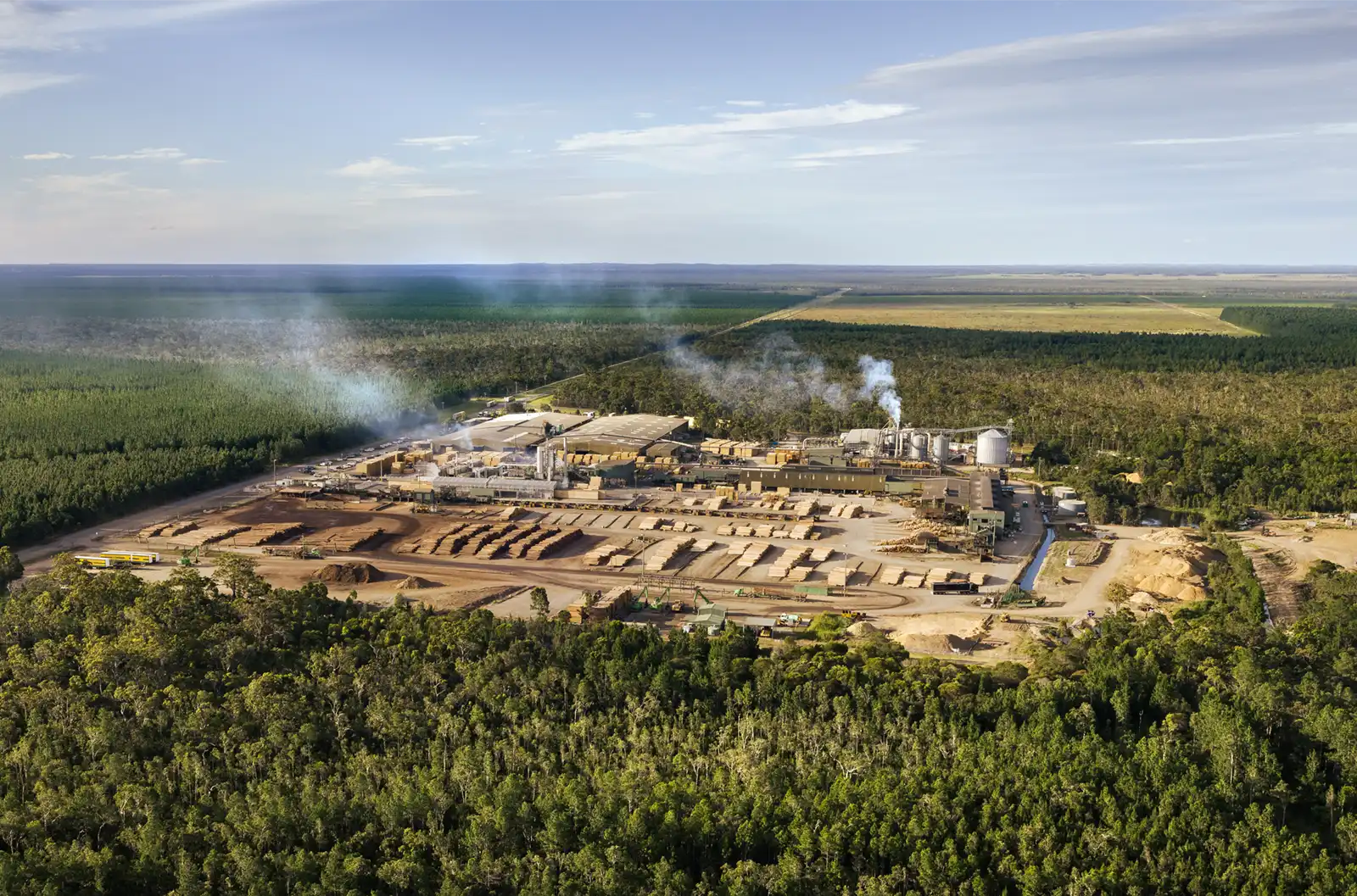No commercial use was being made of pine in Queensland
“Softwood plantations were developed and planted by returned servicemen, who were given jobs to plant trees,” said Peter Hyne. “Around the world at this time, sawmilling technology was also improving.”
Yet, in 1947, pine plantations were still seen to be of no commercial use. This didn’t deter Lambert Hyne, who was known for his relentless drive and ambition.

He was of a different opinion having studied Norwegian and Swedish mills, and he saw the potential for small diameter logs. This thought would become the first step in the company’s transition to softwood.
Remarkably, Hyne was the only bidder for the 1,000,000 super feet (2,360 cubic metres) of ‘thinnings’ from the Amamoor pine plantation, which would otherwise be hauled out of the plantation and burned. “A lot of my competitors thought I was mad,” Lambert admitted.
Amamoor Mill went on to be Hyne’s first successful pine sawmill for these small diameter pine logs and was specially designed and built for them.
An additional quota of ‘thinnings’ was purchased and, by 1949, a new mill at Imbil was built on the site of the old State sawmill. Both the Amamoor and Imbil mills were worked to full capacity.
The narrow timber supplied the box factory in Maryborough, which produced hundreds of thousands of meat boxes for the meat works in Gladstone and Rockhampton.

The time was right
By 1954, Lambert Hyne decided the time was right to increase the company’s stake in the plantation pine industry.
More softwood mills, and more quotas of pine plantation ‘thinnings’, were bought, as well as new Swedish machinery imported for a new mill in Imbil (to replace the original low-lying mill in the town).
From modest pioneering in the plantation industry of 1,000,000 super feet (2,360 cubic metres) in 1947, there was now up to 8,000,000 super feet (18,900 cubic metres) of pine in the company name.
There was another rise in interest in the plantation industry in 1973 with the purchase of 1,500,000 super feet (3,500 cubic metres) of slash pine from the Tuan plantations – Hyne Timber, remarkably, was still the only bidder for it.
With this and further quotas of ‘thinnings’, a small mill was built at Granville in 1974, just 1.5 kilometres from the Maryborough mill, to cut 2,750,000 super feet per year.
The modern Melawondi mill, replacing the Imbil and Amamoor mills, which had become too small, was opened by Queensland Premier Joh Bjelke-Petersen in 1976. This was widely acclaimed for its modern design.

A move into manufactured, engineered timber
By the 1960s, the major threat came from termites, as well as steel. In true Hyne style, they turned this into a business opportunity and their timber chemically treated to fight off termites is credited as saving the industry and a rising demand for sawn timber was seen, particularly in the fast-growing home building market.
By 1979, Hyne had timber treatment plants at Townsville, Monto, Mundubbera and Melawondi. Treated hoop pine was now even used in construction, including prefabricated frames for cooling towers.
By the end of the 1970s, Hyne Timber had evolved from being a supplier of round timbers, such as poles, piles and girders, and into manufactured, engineered timber products used in housing, gang-nail roof trusses and wall frames.
“I realised that instead of just selling a commodity, we should be selling a manufactured, engineered product,” said Lambert1
In 1978, a decision to find a value-add use for hardwood offcuts from the Maryborough Mill started the company off in a new direction again – into glue laminated timber products. Years later, this direction would culminate in the partnership with XLam, an industry leader in cross-laminated and glue-laminated timber products.
Beautiful, versatile and cost-effective, Hyne’s Glulam timber range is a comparatively light building material that can be prefabricated and has a preferential appearance to steel and concrete alternatives.
Today, distribution centres for Glulam are located in the Port of Brisbane (Osprey) and Newcastle, where GLT product is cut to length for the building industry.
Former Glulam Manager (and now Tuan Mill Site Manager) Jamin Tietz remembers this time as one of innovation, saying Hyne was somewhere people in the timber industry aspired to work because of this continued drive to improve and desire to anticipate what the next bit of technology would be that would make the customer’s life easier.
“At this time, the technical team really blazed a trail by producing the 21C beam, the hardest laminated hardwood beam that’s ever been made in Australia,” said Jamin.
The technology and technical experience was, and still is, second to none. To the present day, no one else has been able to replicate the 21C beams.”
1 Hynesight: A history of a timber family in Queensland, published 1980.





















